This time last year I was coordinating and drafting a new Higher Education Innovation Funding (HEIF) Strategy and I thought it worth updating you on progress as part of my weekly column. As some of you may know the strategy was submitted in July 2011 and approved by HEFCE in September. The basic thrust of the strategy was to invest in a series of key sector specific themes, while also appointing a senior Business Engagement Leader. The initial themes where: Soho-on-Sea, prosthetic engineering, a tourism academy, a science hub and Centre for Entrepreneurship, with additional themes coming on line each year of the strategy as each developed and became sustainable. The basic strategy remains the same although some of the themes have changed a little along the way.
Soho-on-Sea was the first of the themes to get underway in the autumn. Having since been rebranded externally as the INTERNATIONAL VFX HUB, the theme has attracted a number of industry ‘Friends’. For the full list and additional information on the Hub’s 8–Key Projects visit: www.internationalvfxhub.com. Partnered with Arts University College Bournemouth and supported by Skillset, the VFX Hub aims to solidify Bournemouth’s international reputation as a leader in excellence within the animation and VFX industries. UK Trade & Investment recently identified Bournemouth as a key provider of ‘creative industry services’ and is attracting investment to the area from international partners, allowing Bournemouth to compete with London’s Soho on both price and value. Upon approaching industry for feedback, Project Director Peter Truckel and Business Engagement Consultant Lindsay Watson have been overwhelmed by positive responses. Many companies have already committed in principle to having their work produced by the VFX Hub. As a whole, the 8-Key Projects combine to deliver an industry bridge allowing professionals to collaborate with academics and students on commercial projects, research, training development and profile building. At the centre of this initiative is a VFX Festival which will run from summer 2013. The initiative is developing rapidly; having recently returned from Los Angles, Professor Tim McIntyre–Bhatty and the VFX Team hosted a series of meeting with key animation studios. Dreamworks, Pixar and Lucas Films are all interested in taking part in various VFX Hub activities. BAFTA have also confirmed their interest in the Festival and the Hub will have it’s first interview with the Guardian newspaper in the coming weeks. Sign-up today to receive regular Email Updates from the VFX Hub – www.internationalvfxhub.com/updates
In terms of the Science Hub, this is proceeding through the initial stages of trying to secure large-scale EU Investment in setting up a regional science facility where local companies can get access to laboratories to engage in ‘R&D’ work especially around the bio-environmental issues. The bid has already passed through some of the initial pre-application stages and shows promise of proceeding to a full application later this summer.
The tourism initiative is developing nicely around a consortium of local authorities who aim to develop a regional/national academy of tourism excellence here in Bournemouth. With a successful project on Digital Destinations already awarded by the ESRC, the team are currently awaiting the outcome of a multi-million pound bid to the Coastal Communities Fund for the establishment of a National Coastal Tourism Academy in partnership with Bournemouth Borough Council which will really set this theme alight if successful. The project is being led by Professor Alan Fyall, Dr Phil Long and Dr Philip Alford with high-level presentations already delivered to tourist authorities in Belgium, Northern Ireland and across the UK to engage industry beyond the region. The first external event is to be hosted at BU on 10 July 2012 where Dr Keith Dinnie from the Netherlands will deliver a one-day workshop on Destination Brand Ambassadors while from September onwards a variety of short-course and CPD opportunities will be launched for professionals in the area of destination marketing and management. Although with a strong industry-engagement focus, this initiative is supported academically through the launch of Elsevier’s new Journal of Destination Marketing & Management by Professor Alan Fyall and a number of colleagues from the School of Tourism.
A decision was taken early in the academic year not to proceed at this point with the design sandpits around prosthetic engineering and after some delay this theme was replaced early in 2012 by one around Dementia with the aim of placing BU at the heart of regional dementia hub. Around 100 people attended a public meeting that served as the launch of the Bournemouth University Dementia Institute (BUDI; www.bournemouth.ac.uk/dementia-institute) on 16 May. There is huge interest locally from a range of stakeholders in taking dementia education, research and practice forward across Dorset. This project led by Professor Anthea Innes is also accelerating rapidly, aided by the increased focus on Dementia afforded by the Prime Minsters commitment in the early spring to invest in this area. There is real potential in this area for BU to shine not only in terms of practice based research but as a community making a real difference to society.
The DM Centre for Entrepreneurship located on the 6th floor of the EBC has now gained four tenants in the form of media related businesses and is building a presence within the region. In January 2012 the BU Board approved the creation of a subsidiary company to manage the Centre – BU Enterprises Ltd – and the this operation is already ahead of its planned business position this year. The Centre has a new website and Professor Dean Patton as head of the Centre is gradually building a network of individuals in the local business community which will allow the Centre to flourish and develop further in the coming months. Mark Painter, the Centre Manager, is currently meeting with a range of colleagues across BU to look for opportunities to work with and support other Schools. At the same time, the Centre is moving forward with a number of external events and seminars to be held at the EBC later in the year. Discussions are currently under way as to how we can expand the opportunities provided by the Centre especially in the area of student start-ups and in developing an internal culture of knowledge exchange.
We have also given a commitment to invest in the work under taken by Sarah Bate around Face Blindness (prosopagnosia) which has huge potential. Sarah is using this investment to create a ‘Centre for Face Processing Disorders’ that aims to carry out the first large-scale investigations into the assessment and treatment of prosopagnosia. In addition, the Centre will provide support for professionals who work with children with face processing deficits, provide unique educational placements for undergraduate and postgraduate students, and facilitate the networking of academics/practitioners interested in this field of study. As illustrated by our commitment to Sarah’s work, we are always in the market for new themes which can help bring about our aspiration to deliver a step change in Knowledge Exchange Performance for BU with a strong focus on the creation of knowledge networks which unlock collaboration, information flow and new initiatives
The final component of the strategy was to appoint a Business Engagement Leader to help broker new business for BU, provide some corporate management of our key business clients, to help develop the sector specific themes and seek our new innovation. The post was advertised back in January 2012 but unfortunately we were not able to make an appointment before Easter and are currently awaiting a second round of interviews. It is vital that we get the right person, and while the delay is irritating to a naturally impatient person like my-self we hope to make an appointment in the next few weeks.
So that is in way of a brief update on progress and if you have any great ideas or suggestions then please don’t hesitate to get in touch. HEIF is about finding and investing in innovation, so please step forward and innovate if you have a theme needing investment!



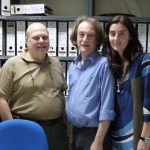
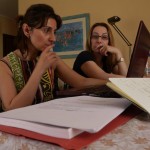
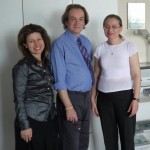





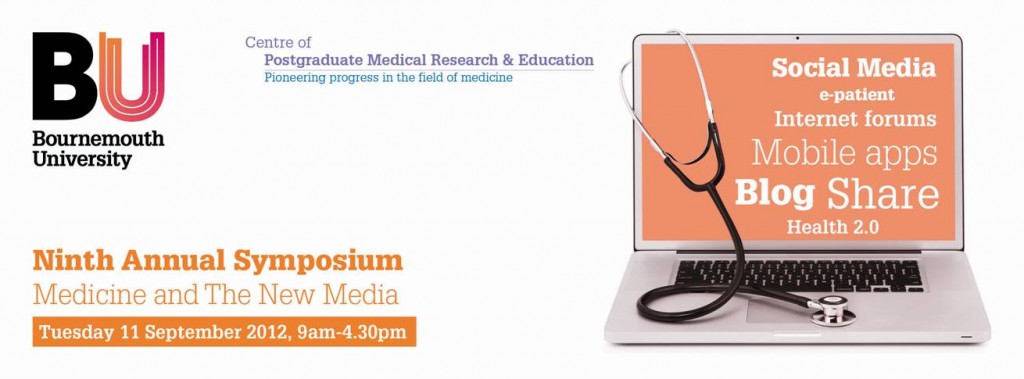


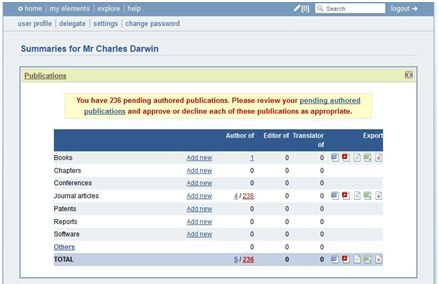













 REF Code of Practice consultation is open!
REF Code of Practice consultation is open! BU Leads AI-Driven Work Package in EU Horizon SUSHEAS Project
BU Leads AI-Driven Work Package in EU Horizon SUSHEAS Project Evidence Synthesis Centre open at Kathmandu University
Evidence Synthesis Centre open at Kathmandu University Expand Your Impact: Collaboration and Networking Workshops for Researchers
Expand Your Impact: Collaboration and Networking Workshops for Researchers ECR Funding Open Call: Research Culture & Community Grant – Apply now
ECR Funding Open Call: Research Culture & Community Grant – Apply now ECR Funding Open Call: Research Culture & Community Grant – Application Deadline Friday 12 December
ECR Funding Open Call: Research Culture & Community Grant – Application Deadline Friday 12 December MSCA Postdoctoral Fellowships 2025 Call
MSCA Postdoctoral Fellowships 2025 Call ERC Advanced Grant 2025 Webinar
ERC Advanced Grant 2025 Webinar Update on UKRO services
Update on UKRO services European research project exploring use of ‘virtual twins’ to better manage metabolic associated fatty liver disease
European research project exploring use of ‘virtual twins’ to better manage metabolic associated fatty liver disease